Iraqi Security Forces Order of Battle update: May 2009
Iraqi troops are receiving training on 120mm mortars while K9 training is underway for both Army and police units.
Iraqi troops are receiving training on 120mm mortars while K9 training is underway for both Army and police units.
The budget crunch has halted the expansion of the Iraqi Security Forces. The purchase of major weapons systems is up in the air.
A look at existing and planned ground components of the Iraqi Armed Forces at the end of Phase 3 development in 2020.
The recent announcement to cut three brigades in Iraq by the summer will halve the number of brigades in Iraq since the summer of 2007, while the number Iraqi Security Forces personnel has doubled.
The dramatic drop in oil prices has created a budget crunch that may impact equipment purchases for the Army and police forces.
The transfer of control of provincial security will be completed by July; Diyala, Ninewa, and Baghdad are the last provinces to be transferred.
Kurdish press report Iraqi Army movements as a threat, but the purpose of these movements is to provide election support and the training of a new division headquarters and two new brigades.
The Iraqi Army is devoid of artillery assets, a crucial element that prevents it from operating independently. This is expected to change over the next several years.
The 9010 report outlines the transition of the five remaining provinces to Iraqi control. Budget shortfalls due to falling oil prices will hamper the growth of the Iraqi Security Forces in 2009.
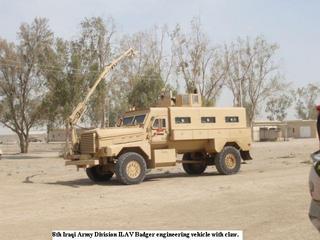 The development of engineering units is crucial in allowing the Iraqi Security Forces to independently support operations and clear roadside bombs.
The development of engineering units is crucial in allowing the Iraqi Security Forces to independently support operations and clear roadside bombs.
The Interior Ministry continues building a National Emergency Response Brigade while training and arming the forces continues.
While much is known about the development of the Iraqi Security Forces, there are major gaps in the publicly available information concerning these forces.
Iraqi Army buying more M1 Tanks; Iraqi National Police buying Strykers for its mechanized divisions; Iraqi Navy doubling; Iraqi Air Force buying first real light attack aircraft.
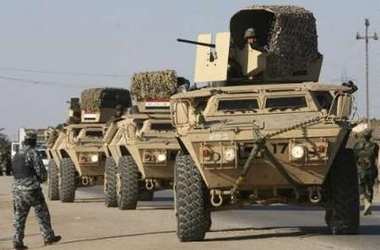 Iraq’s National Police will begin to take over internal security as capabilities increase, freeing the Army to focus on external threats.
Iraq’s National Police will begin to take over internal security as capabilities increase, freeing the Army to focus on external threats.
Iraqi forces are massing in Mosul to battle al Qaeda and the insurgency.
 Armored and mechanized forces convert the existing, basic light infantry force into a heavier, more capable force able to deal with external threats.
Armored and mechanized forces convert the existing, basic light infantry force into a heavier, more capable force able to deal with external threats.
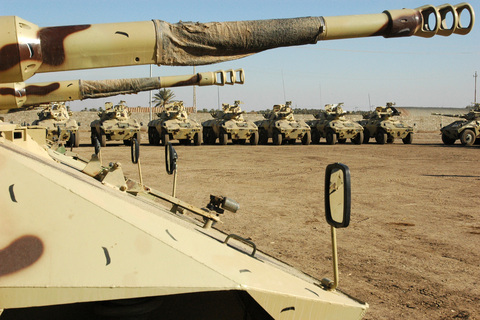 Recent weapons purchases shed light on the possibile force structure of Iraqi Army’s light armored forces, including reconnaissance and cavalry units.
Recent weapons purchases shed light on the possibile force structure of Iraqi Army’s light armored forces, including reconnaissance and cavalry units.
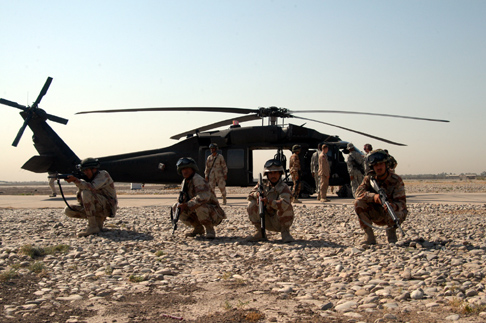 The Iraqi Army is equiping seven to eight light divisions, including commando, air assault, mountain units.
The Iraqi Army is equiping seven to eight light divisions, including commando, air assault, mountain units.
 Iraq will purchase 516 military aircraft from the United States and France for its new Air Force. The planes and helicopters will provide Iraq with its first significant air combat and strike capability.
Iraq will purchase 516 military aircraft from the United States and France for its new Air Force. The planes and helicopters will provide Iraq with its first significant air combat and strike capability.
Wasit and Babil provinces are under Iraqi control; Kirkuk and Salahadin provinces are next.
Babil and Wasit are next on the list for Provincial Iraqi Control. The Air Force may be getting F-16s while the Army trains more forces for air assault missions.
Logistics are key for the Iraqi military and police to conduct fully independent operations.
The Counter Terrorism Bureau, which houses much of Iraq’s special operations capable forces, provides the third leg of the security forces troika.
Anbar is the eleventh province to go under Iraqi control, the 17th Division takes control of southern Baghdad, and more.
The US plan to draw down forces in Iraq was announced by General Petraeus in a September 2007 briefing to Congress. The drawdown schedule is based on the Iraqi forces taking over responsibility for security.
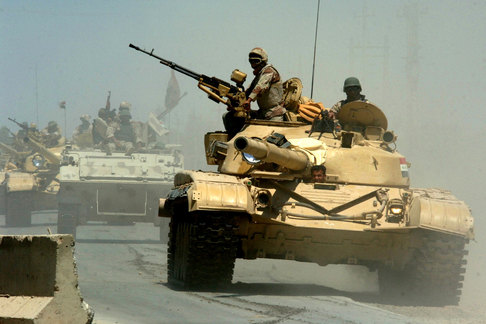 Iraq’s arms purchases provides insight on the potential distribution of armor in the Iraqi Army.
Iraq’s arms purchases provides insight on the potential distribution of armor in the Iraqi Army.
The Iraqi military announced $10.8 billion in purchases of military hardware from the US, signaling a major upgrade in capabilities.
A look at the development of the Iraqi security forces. Two provinces have transfered to Iraqi control.
A rough estimate of the state of the Iraqi Security Forces at the end of 2012.
Qadisayah province will transition to Iraqi control; Operations in Basrah, Sadr City, and Mosul have put another operation on hold; National Police to expand; Improvements in the security forces.